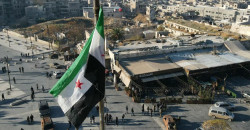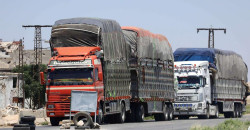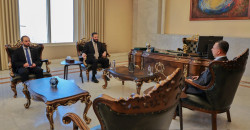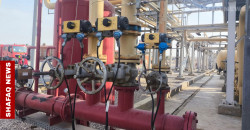Syria-Iraq Trade: Stalled at the doorstep of politics
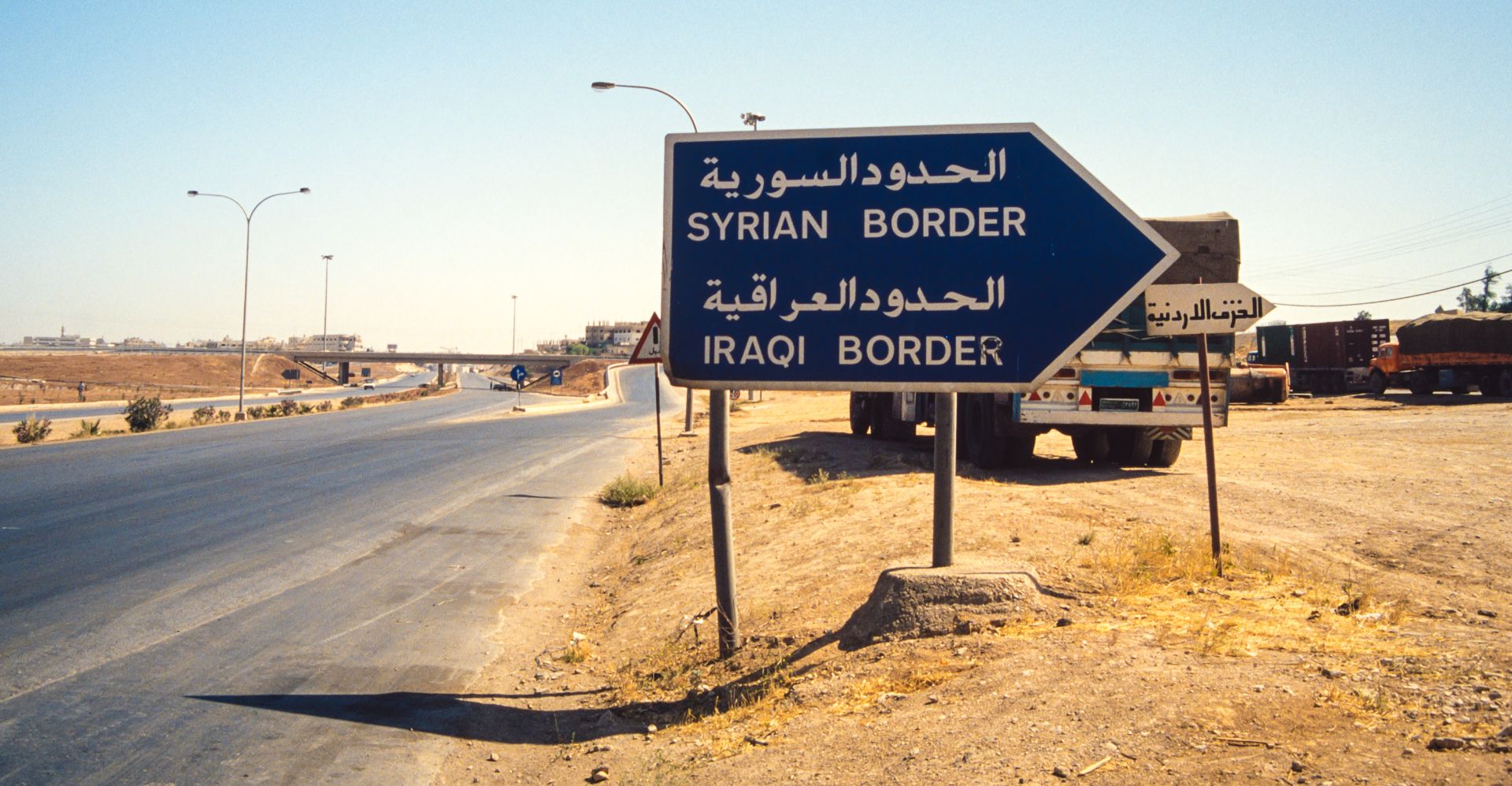
Shafaq News/ Syria has been seeking to restore its once-thriving trade relationship with Iraq, but political hesitation in Baghdad has left businesses frustrated.
Despite Syria fulfilling key border security and customs requirements, Iraq remains reluctant to fully re-engage. Ibrahim Shalash, a member of the Syria-Iraq Business Council, told Shafaq News, "The Syrian side in Al-Bukamal has been ready for 15 days to receive Iraqi cars and trucks entering Syria, with all necessary security and administrative measures in place, including customs and passport control. However, the Iraqi side has yet to open the border."
At the heart of the dispute is a familiar theme: Iraq insists that formal trade agreements will not resume until Syria achieves political stability. The absence of official banking channels, restrictive trade policies, and Baghdad’s security concerns keep large-scale economic cooperation at a standstill.
Despite the government-level deadlock, private businesses on both sides are sustaining limited exchanges. Iraq exports dates, industrial goods, and food products to Syria, while Syria supplies Iraq with sweets, pastries, fruits, vegetables, cosmetics, and medical supplies. This unofficial trade keeps the relationship alive—though at a fraction of its former volume.
"Syrian exporters are struggling with economic sanctions that are gradually easing, such as the Caesar Act and other US and European restrictions," Shalash noted. "However, the biggest problem facing trade with Iraq is the absence of banking cooperation between the two countries. There are no official bank transfers, forcing traders to rely on the black market.”
For Syria, Iraq is not just another trade partner—it is a lifeline. Before the Syrian civil war, Iraq accounted for around 22.7% of Syria’s exports in key sectors like pharmaceuticals, textiles, and food products, but that pipeline has nearly dried up today.
From Promises to Stalemates
Economic ties between Syria and Iraq have swung between cooperation and political rifts for decades. In 2001, the two countries signed a free trade agreement alongside Egypt and Libya, aiming for regional economic expansion. Syria established a trade center in Baghdad, while Iraq launched a duty-free zone at the Al-Qaim border crossing, boosting bilateral commerce. By 2010, Iraq had become one of Syria’s top trading partners, reinforcing their interdependence.
That momentum collapsed with the 2003 US invasion of Iraq. Al-Assad’s government opposed the war, and Iraq’s new US-backed administration accused Syria of facilitating the movement of foreign fighters across the border. Diplomatic ties suffered, trade agreements stalled, and tensions deepened. It wasn’t until the rise of ISIS in 2014 that security cooperation led to a partial re-engagement between the two nations.
Even during the Syrian civil war, Iraq maintained diplomatic ties with Damascus, recognizing that Syria’s security challenges directly impacted Iraq’s own national stability. However, the fall of Al-Assad’s regime in late 2024 created new uncertainties—while Iraq opened channels with Syria’s transitional government, concerns over border security, smuggling, and financial instability have made full-scale trade cooperation unlikely in the near term.
Between Policy and Politics: Barriers to Trade
Syrian officials insist that they have done everything necessary to reopen trade routes—customs officers are in place, logistics are set, and exporters are waiting for green lights from Baghdad.
Shalash expressed frustration, stating, "Syrian industries are among the strongest in the region, whether in pharmaceuticals, textiles, clothing, or food products, and they offer higher quality than many competing goods."
He added, "Syrian industry has significantly contributed to reviving the Turkish economy, employing between 2 to 3 million Syrians. Most of the Turkish clothing exported to Iraq is actually produced in Syrian-run factories in Turkiye."
Despite Syria’s efforts, Iraq remains unmoved. Iraqi Trade Ministry spokesperson Mohammed Hanoun reinforced Iraq’s cautious stance, stating, "There will be no official government-level trade cooperation between Syria and Iraq until the situation in Syria stabilizes and the Iraq-Syria joint committee completes its meetings and issues a report in line with the Syrian political framework."
Even if Iraq were to greenlight trade, the lack of official banking cooperation would create another economic hurdle. With no formal bank transfer system, businesses rely on black market transactions, where currency exchange rates skyrocket beyond official rates. As of 2025, the black market rate fluctuates around 1,500 Iraqi dinars per US dollar, compared to the official rate of 1,320 dinars (Central Bank of Iraq, 2025).
"This situation drives up the cost of Syrian products and increases shipping expenses between the two countries," Shalash pointed out. "As a result, Syrian goods arrive in Iraq at higher prices than their Iranian, Jordanian, Turkish, Emirati, or Chinese counterparts."
The Pharmaceutical Roadblock
Pharmaceutical exports—once a pillar of Syria’s trade with Iraq—have been particularly hard hit. Before the Syrian civil war, Syrian pharmaceuticals accounted for 70-80% of Iraq’s medicine imports.
In January 2025, the Iraqi Ministry of Health blocked new Syrian pharmaceutical companies from registering, citing "security and quality control concerns."
"More than 50 Syrian pharmaceutical factories are already registered in Iraq with local agents," Shalash stated. "However, 15 to 30 new factories have been established in recent years, and they require approval from Iraq’s Ministry of Health to export their products."
A Trade Partnership in Limbo
Syria views Iraq as a central pillar of its economic recovery strategy. It has outlined plans to increase exports, revive pre-2011 trade levels, and improve logistical infrastructure.
Hassan Al-Sheikh, head of the Iraq-Syria Business Council, stated, "The Iraqi side has completed its preparations to resume trade with Syria but has required Damascus to establish a fully integrated border post to prevent smuggling."
"The Syrian side has fulfilled all the necessary conditions for the crossing, including securing border guards, customs, passports, and official seals," Al-Sheikh added. "Now, we are waiting for Iraqi security officials to sign an agreement regulating the border's operations, specifying permitted goods and required documents such as certificates of origin, customs declarations, and inspections."
Despite Iraq’s reluctance at the government level, Al-Sheikh confirmed that limited trade continues, stating, "Iraq currently exports dates and some food and industrial goods to Syria while importing sweets, pastries, fruits, vegetables, cosmetics, perfumes, pharmaceuticals, medical supplies, and other goods."
As Syria pushes for economic recovery, the challenge remains: will Iraq ease its restrictions, or will it continue to keep trade on hold?
